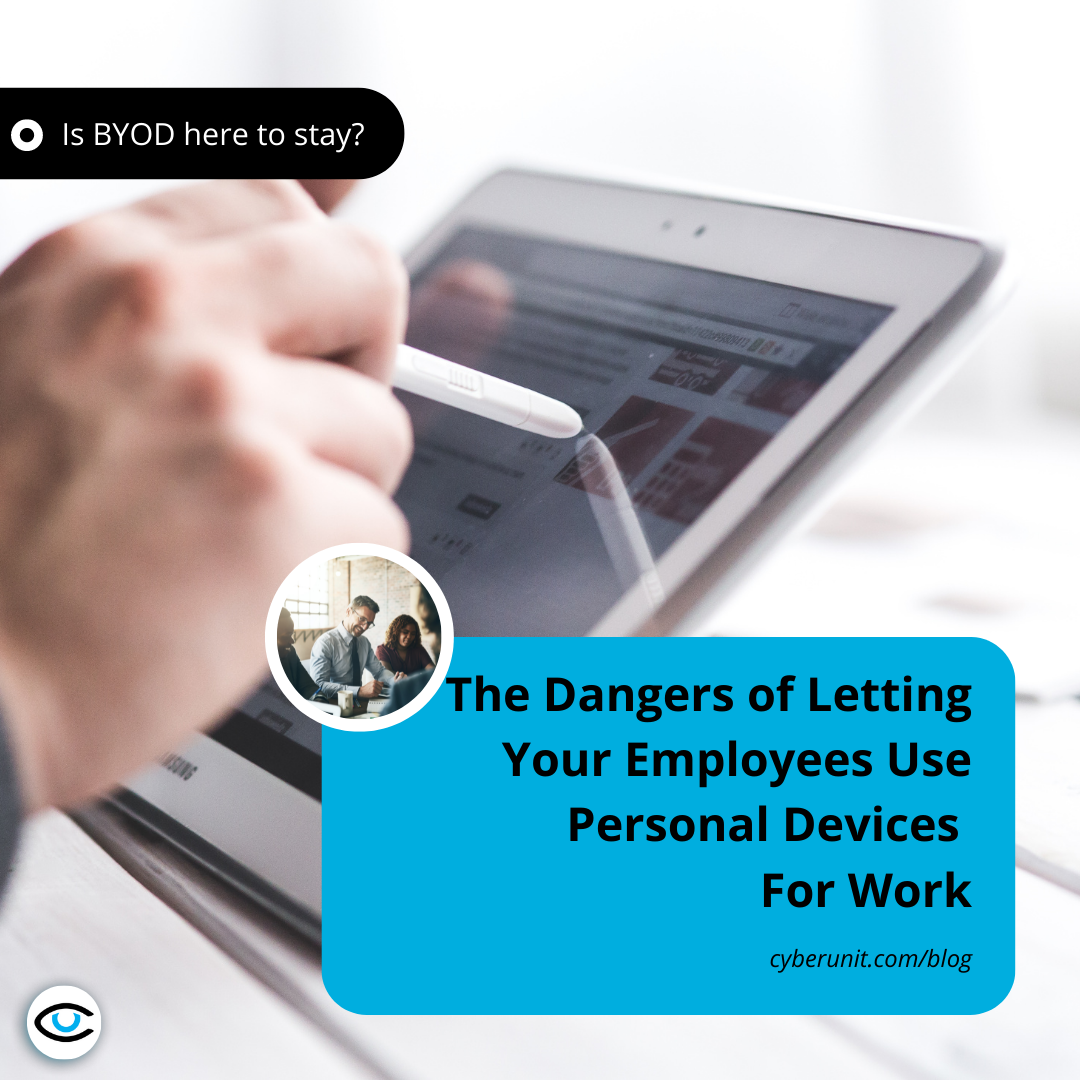Are You Letting Your Employees Use Personal Devices For Work?
Imagine this, you start your own business and begin hiring employees. Just like 87% of all businesses, you ask your employees to BYOD (Bring your own device).
Sometimes there isn’t even a discussion around this, and it’s just expected that this would be the case. This is quite convenient for both parties - the employer can save a few bucks, and the employee doesn’t have to carry around two phones in their pocket. But as an employer, have you ever thought about what your employee does with that phone after hours, or even worse, during work hours?
Below are 3 mistakes you make as an employer that could potentially harm your business.
1. Your employee downloads applications on their phone
If an employee starts downloading apps that are not from the official app store, they run the risk of potentially downloading malware. This malware could lead to a breach in the data on the phone and if that employee uses that phone for work, your company data could be compromised.
2. Your employee opens their work emails outside of the office
In some industries and positions, it’s expected that your employee checks their work emails while they aren’t at work. However, depending on the network their using, this could open up risks to your company data. Some examples of networks that aren’t secure are the free wifi networks provide in public areas, airports, hotels, etc.
Unfortunately, unsecured WiFi networks are prime targets for hackers to get into company and customer data. When you work beyond the office perimeter, it’s imperative to have the right cyber security in place.
3. Your employee doesn’t change their passwords often enough
This day and age require us to input passwords into everything. But how often do we change our passwords? When your employee is using their emails across different platforms, how often do you think they are changing them? Proper policy is that all passwords should be changed at least once a month. Strong passwords that are difficult to remember can be stored somewhere like Lastpass.
It’s also been surveyed that only 38% of users use two-factor authentication on their devices. If you don’t have those kinds of policies in place, and actualize them on a regular basis, then your company data may be at risk. As we like to say, “If you think your passwords are safe…think again!”.
Whether or not you have one or 50 employees, the risk is there. We’re not saying that now you have to get onto a new plan with a sub-par and expensive system and provide new phones. There are actually cybersecurity options that work to prevent mobile attacks directly on your employee’s phone.
With our mobile protection plan, our software runs in the background of the phone at all times and monitors anything that is downloaded, opened or sent. It acts as a barrier between your employees own mobile devices and the thousands of hackers constantly trying to breach them at all times. And again, it’s affordable for any size organization.
